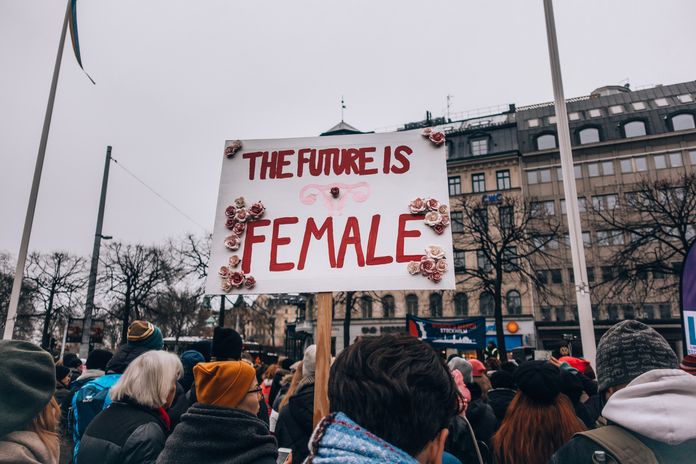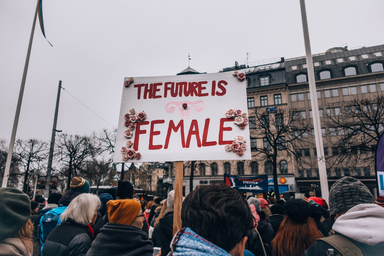On October 19th, Bosnians recognized 17 years since the death of the country’s first president, Alija Izetbegovic. Alija Izetbegovic was an author, politician, and lawyer who became the first president of Bosnia and Herzegovina in 1992 when the country declared independence. He dedicated his whole life to fighting for human and religious rights in former Yugoslavia where Bosniak Muslims and Ethnic Albanians were discriminated against, and later massacred, for their religious and ethnic identities He was imprisoned by the Yugoslav government in 1944 for supporting a Bosnian human rights organization and was accused of stirring up nationalistic hatreds. In 1983 him and twelve other Bosniak activists were arrested for stirring up nationalistic hatreds and sharing propaganda against the Yugoslav state. The human rights organization “Amnesty International” heavily criticized his imprisonment because there wasn’t enough evidence against him. They cited some of his literary work claiming it was propaganda, but many historians and writers outside of Yugoslavia protested this and called the false claims censorship. There was only enough evidence to show that the Yugoslav government was trying to silence ethnic and religious minorities in the country.
Izetbegovic became well known in the academic world through some of his literary works, most notably his book titled “Islam Between the East and West” which gained him a spotlight in the academic world. His thoughts inspired an entire generation of Bosnians to stand up against the ultra-nationalists who were in power in Yugoslavia. Izetbegovic called for an independence referendum on the European condition for recognition of Bosnia and Herzegovina as an independent European state. He was warned by Serb leader that this was unconstitutional, and was told by one of the Serb leaders, Radovan Karadzic, that if Bosnians declared independence, they could potentially become exterminated because they wouldn’t have an army strong enough to defend themselves against the Yugoslav state. Izetbegovic boldly replied to him that the Bosnian people would never become exterminated, and those words are still quoted today when we remember the four years of war and genocide we went through for freedom. War broke out weeks after Bosnia formally declared independence and throughout the war, Izetbegovic consistently promoted the idea of a multi ethnic Bosnian state where everyone would be equal and free to express their identities.
Izetbegovic’s role as leader during the Bosnian war played an important part in our independence. In 1992, he was kidnapped and held hostage by Serb forces. After his kidnapped and release, the bombardment of Muslim and Croat residents in the city of Sarajevo intensified. During the bombardment he refused to leave the city to seek refuge, even though he was urged to do so. Officials thought it would be safer for the president to lead his people from somewhere safer, but he didn’t want to leave his people behind. For four years Izetbegovic lead the mutli-ethnic Bosnian army against the Yugoslav backed Serbian forces. The speeches he delivered to the army and to Bosnian civilians is the reason Bosnia held on to hope for so long while their country was falling apart around them. He visited soldiers and their families, attended the funerals of children who were killed, and reminded people that there would be victory for us after all this misery. He worked with world leaders to find an end to the bloodshed without compromising Bosnian freedom. The Bosnian war and genocide was one of the bloodiest atrocities the world has ever seen. Men were rounded up and sent to concentration camps and mass graves while the women and children were expelled from their homes. Thousands of children in Sarajevo were victims of snipers, grenades, and mortar attacks. While the opposing armies were targeting civilians, Izetbegovic said “Those who have bloodied their hands cannot be forgiven, but the only ones who are to be forgiven regardless of everything are the women and children. Let us not be an army that does what they are doing to us. Let us never fight against women and children. We will never win if we do.” The war finally came to an end when the 1995 Dayton Peace Treaty was signed and agreed upon by Bosnia, Serbia, and Croatia. After the end of the war, Izetbegovic was re-elected and continued to serve until 1998. He helped us take our country that was left in ruins and rebuilt it. On October 19 200, he passed away in Sarajevo. His works are read in universities across the world and his legacy still lives on in the hearts of Bosnians. He is celebrated by Bosnians in songs and poems and we honor his legacy by still striving to reach the equality he envisioned for Bosnians regardless of ethnicity or religion. He will be forever remembered as a national hero.


